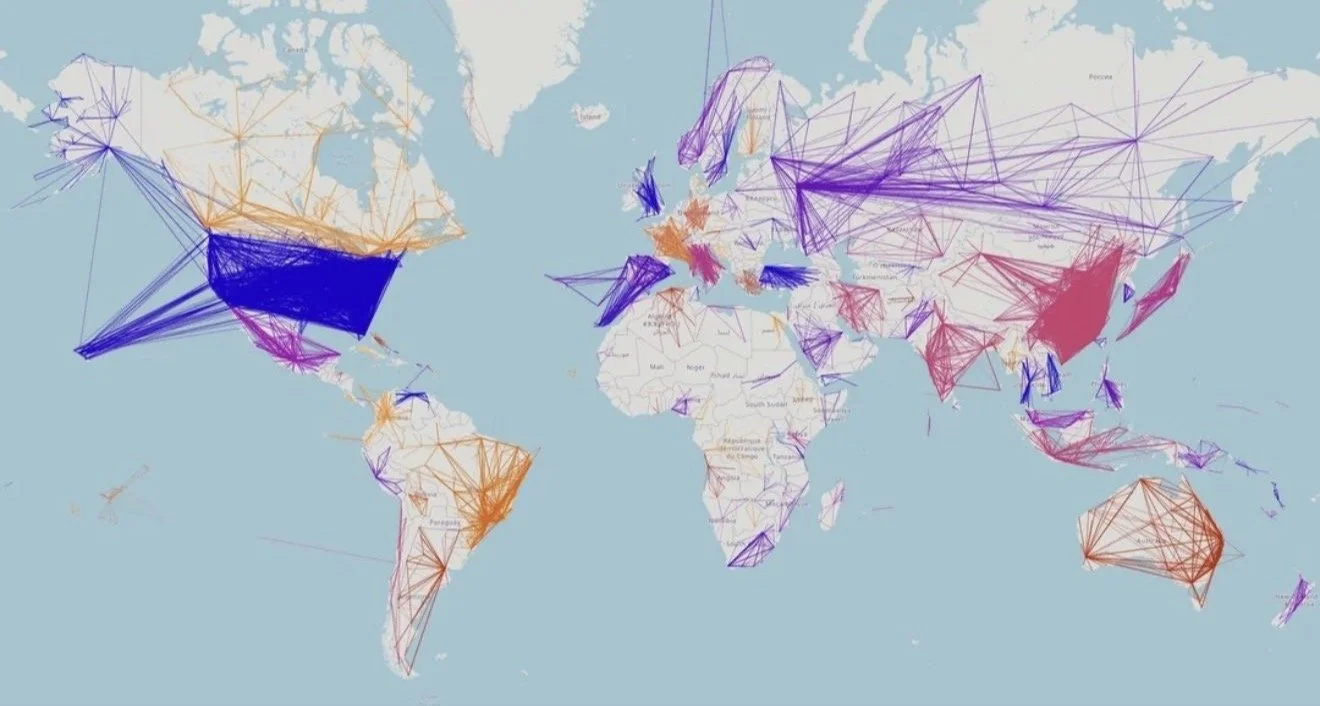The true scale of domestic air travel
Global domestic air travel
This graphic from Felix Roick doesn’t just show global connections between countries - it reveals the sheer density of domestic air travel.
From the spider’s web over the United States, to Europe’s clustered routes and Asia’s rising hubs, short-haul flights dominate the skies.
But what looks like connectivity on a map often feels very different on the ground.
🛩️ Domestic short-haul routes frequently use older, noisier aircraft.
🏘️ Many smaller regional airports are located right next to communities, meaning the impacts of aviation noise and emissions are felt most directly by those who live below.
📈 And with demand set to double in the next 20 years, those impacts will only grow unless managed carefully.
At My Flight Path, we believe homebuyers, surveyors and property professionals should have a clear picture of what aviation means for a community before making decisions. Estate agent viewings won’t tell you that you’re under a busy flight path but data can.
As domestic aviation expands, the challenge is not just global sustainability, but also local liveability.
👉 How do we balance growth in air travel with protecting the health, wellbeing, and property values of the communities most affected?


